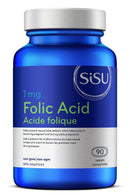- Heart Disease
The role of folic acid in heart health is largely related to homocysteine levels. In one study, 31 adults with three or more risk for factors for coronary artery disease (CAD) and elevated homocysteine levels were given 5 mg of folic acid for six months. At the end of the study, homocysteine levels had declined significantly and the arteries were in better condition. So many studies have found one or more of B6, B12, and folic acid to reduce homocysteine levels and improve arterial health that many researchers are now recommending routine supplementation with these three nutrients for all patients with high homocysteine levels and other risk factors for heart disease and stroke.
Kidney Disease
Kidney Disease
In a study of 25 dialysis patients, 83 percent were found to have elevated homocysteine levels.
For six months, they received B6, B12 and folic acid supplements after dialysis. Eighteen patients finished the study and about three-quarters of them showed normalized homocysteine levels at that time. A two-year study of 23 dialysis patients yielded similar results.
Brain Function and Depression
For six months, they received B6, B12 and folic acid supplements after dialysis. Eighteen patients finished the study and about three-quarters of them showed normalized homocysteine levels at that time. A two-year study of 23 dialysis patients yielded similar results.
Brain Function and Depression
There is significant evidence that depression and cognitive function may be linked in some younger individuals with low folic acid levels. There is also significant evidence of the roles of depleted levels of B vitamins in such degenerative neurological disorders as Alzheimer?s and Parkinson?s diseases.
In addition, new research suggests that when depression in older people is treated with prescription antidepressants, adequate folic acid levels are correlated with a good response to treatment. Evidence is mounting that the ?powerhouse trio? of B vitamins are vital to brain function throughout life.
Fetal Development
In addition, new research suggests that when depression in older people is treated with prescription antidepressants, adequate folic acid levels are correlated with a good response to treatment. Evidence is mounting that the ?powerhouse trio? of B vitamins are vital to brain function throughout life.
Fetal Development
For years now there has been sufficient evidence of the importance of folic acid in preventing spina bifida that women have been encouraged to take supplements throughout their reproductive years. Recent studies have also shown that low levels of folic acid and Vitamin B6 in mothers may be related to increased risk of cleft palate in their newborns. As well, maternal deficiencies of B6, B12, and folic acid have been correlated with unexplained pregnancy loss and other complications during pregnancy.
It is suspected that this is a result of elevated homocysteine levels.
Other Important Points about SISU Folic Acid:? High levels of folic acid in the body can mask symptoms of a B12 deficiency. Therefore, it is wise to take folic acid with B12 supplements. ? Because maternal folic-acid status is critical to many aspects of pregnancy outcome, it is recommended that all women of childbearing age take folic acid.? Folic acid is one of the ?powerhouse trio? of B vitamins, which also include B6 and B12. Many conditions that respond well to folic acid supplementation respond even better to the synergy created by taking these three nutrients together.
It is suspected that this is a result of elevated homocysteine levels.
Other Important Points about SISU Folic Acid:? High levels of folic acid in the body can mask symptoms of a B12 deficiency. Therefore, it is wise to take folic acid with B12 supplements. ? Because maternal folic-acid status is critical to many aspects of pregnancy outcome, it is recommended that all women of childbearing age take folic acid.? Folic acid is one of the ?powerhouse trio? of B vitamins, which also include B6 and B12. Many conditions that respond well to folic acid supplementation respond even better to the synergy created by taking these three nutrients together.
| Medicinal Ingredients | |
| Servings Size: 1 Softgels | |
| Servings Per Container: 90 | |
| Amount per Serving | |
| Folate (Folic acid) | 1 mg |
| Non-medicinal ingredients: microcrystalline cellulose, magnesium stearate (vegetable), gelatin. | |
| Contains no dairy, yeast, wheat, gluten, corn, soy, artificial colours or preservatives. | |
Take 1 capsule daily








